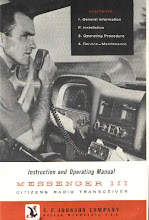An abeyant fiction

Mnsr Gribaldi adjusted the position of his ecclesiastical in-ear headphones and raised the volume of the Gotan Project’s second album,
Lunatico, prior to fastening the clasp of his leather accordion briefcase , fixing his frock coat, securing his hat, and exiting the train at Kings Cross City Thameslink. No one know why it was still called that since the train company running the service between Luton and Sutton was no longer Thameslink but First Capital Connect. It also connected Gatwick and Luton airports on occasion, and it was from the former that he had journeyed, inserting his all-in-one ticket into the barrier at Gatwick with some trepidation, since the junior clerk at the Vatican who took charge of travel arrangements had been preoccupied of late with various papal excursions. Indeed the furore which greeted the pontif’s then recent affront to the Muslim tradition during his visit to [deleted detail] had the curious but highly localised effect of launching the travel office into the limelight not seen since the globetrotting days of PJPII. As the novice elongated his person to an upright position the gaze of several passengers both alighting and remaining, along with that of several joining the train or awaiting the next, were trained on him. Some fixed on his headwear, others on his complexion framed by the latter, others on the impressive frock coats with their many pleats. A few noted his elaborate black fabric belt, others still his general bearing, anachronous and geographically out of context appearance. Not a few were caused to pause for a second of false recognition, only to realise that what they recognised was their television screen staring back at them in the shape of an advertisement for Stella Artois. But many knew immediately what had caught their eye: all of the above compressed and set off by the dense symbolism and iconic status of the I-Pod.
Aside from the Gotan Project’s second album, a much misunderstood work in the music press due to the association of their first album with so-called chill out periods post clubbing. The experienced musicians involved had not made any such associations when they trawled Argentinian tango for beats and rhythms, the iPod’s repository featured sundry Latin American artists including Joyce, an Italian jazz quartet whom he could never decide were talented or not. Their cover version of [deleted detail] was affecting in its way, though less curiously so than the version of a track from the soundtrack of Emmanuelle which featured on the Gotan Project’s debut recording.
He disembarked and strode out into King’s Cross rain. The traffic at the junction of and the Pentonville Road was locked in the vice-grip of a cantilever bus. He dodged it by inserting himself perilously between its rear and the throbbing frontage of the one hard on its wheels. The driver revved and allowed the vehicle to lurch forward fractionally, a frequent amusement for some sadistic bus-drivers when faced with slaloming pedestrians frustrated by the rash of blocked pedestrian crossings brought on by the introduction of the so-called bendy bus.
Onward he plod, noting that since his last visit the lights at [deleted detail] had been changed so that now the island was dangerously full with pedestrians trapped by the seemingly excessive green on traffic turning left into [deleted detail]. He steered a course between the Amnesty International clipboard holding individual and the purveyor of London Lite and their direct competitor in the world of free newspapers. and headed into the building site that was the Euston Road. He passed the entrance to what would soon be the underground access under St Pancras. Adhesive backing was being peeled off some of the London Underground signage as he passed by. Further on the redevelopment of the Great Northern Hotel was proceeding with the entire facade now held in the skeletal embrace of an estimated [deleted detail] metres of scaffolding. He enjoyed crossing [deleted detail] where no traffic save for the odd construction vehicle now interfered with crossing pedestrians and went on past the ever-present Big Issue seller past the now closed Chapters coffee shop under the grim bunker entrance and into the courtyard of the British Library.
 Weekend, Saturday October 13) would like Jacques Rivette’s Out 1: Spectre (1971-1972, but released in 1974) to be remade in order, they quip, to be shortened (from its actual 255 minutes), they seem to be unaware that the director got there first, his 1972 film being itself already a ‘remake’ (or, more precisely, re-edited version) of his Out 1: Noli me tangere (1971) which, in its rare public screenings, comes in at 12 hours and 40 minutes. At its first public screening in Le Havre in 1971 and at the NFT’s retrospective in 2006 the longer work was presented over two days (the work was at first intended by Rivette for television broadcast). According to Rivette specialist Jonathan Rosenbaum, Rivette cut 10 minutes from the film after a 1989 Rotterdam screening, which would mean he has ‘remade’ the 1971 original not once but twice.
Weekend, Saturday October 13) would like Jacques Rivette’s Out 1: Spectre (1971-1972, but released in 1974) to be remade in order, they quip, to be shortened (from its actual 255 minutes), they seem to be unaware that the director got there first, his 1972 film being itself already a ‘remake’ (or, more precisely, re-edited version) of his Out 1: Noli me tangere (1971) which, in its rare public screenings, comes in at 12 hours and 40 minutes. At its first public screening in Le Havre in 1971 and at the NFT’s retrospective in 2006 the longer work was presented over two days (the work was at first intended by Rivette for television broadcast). According to Rivette specialist Jonathan Rosenbaum, Rivette cut 10 minutes from the film after a 1989 Rotterdam screening, which would mean he has ‘remade’ the 1971 original not once but twice.

